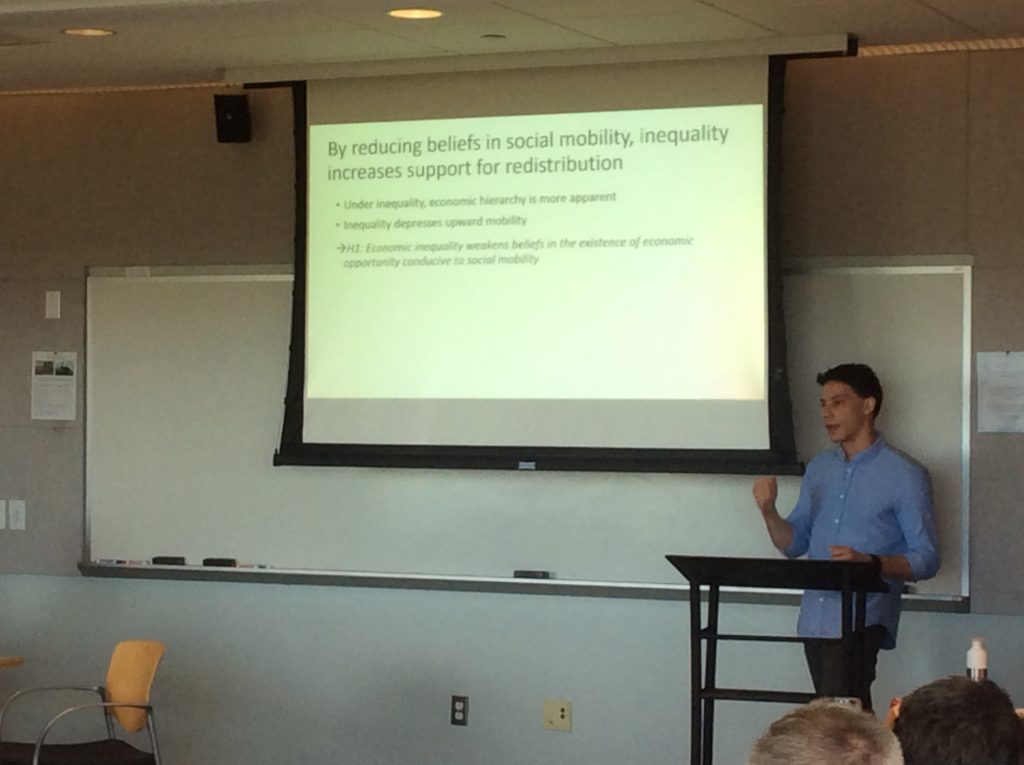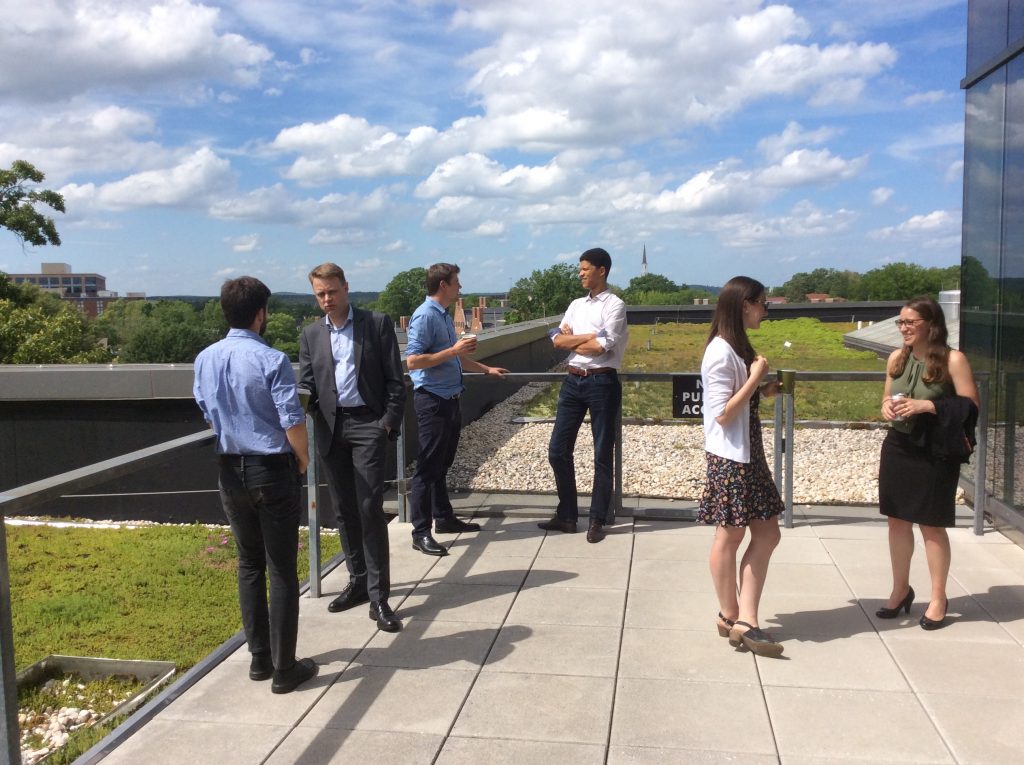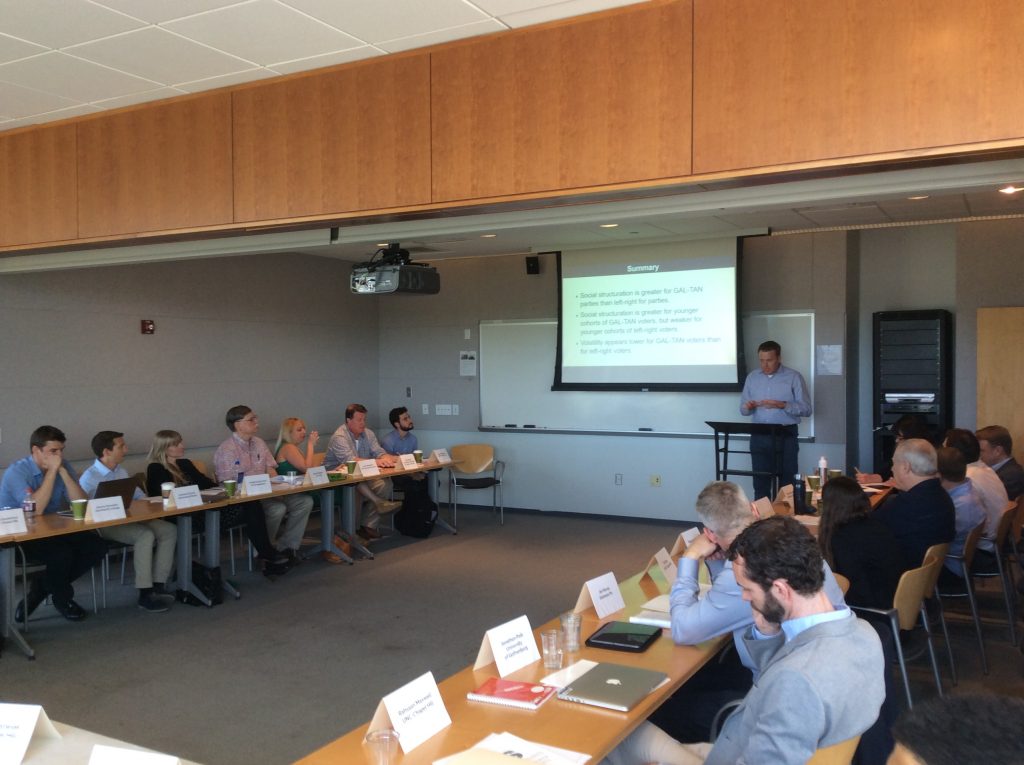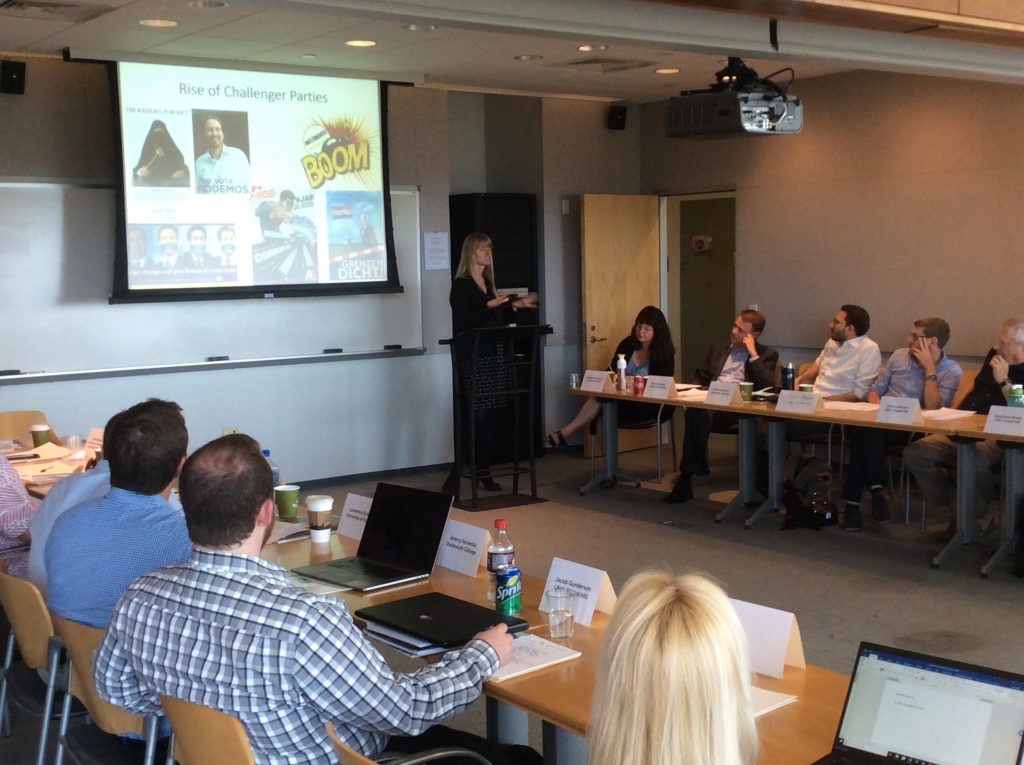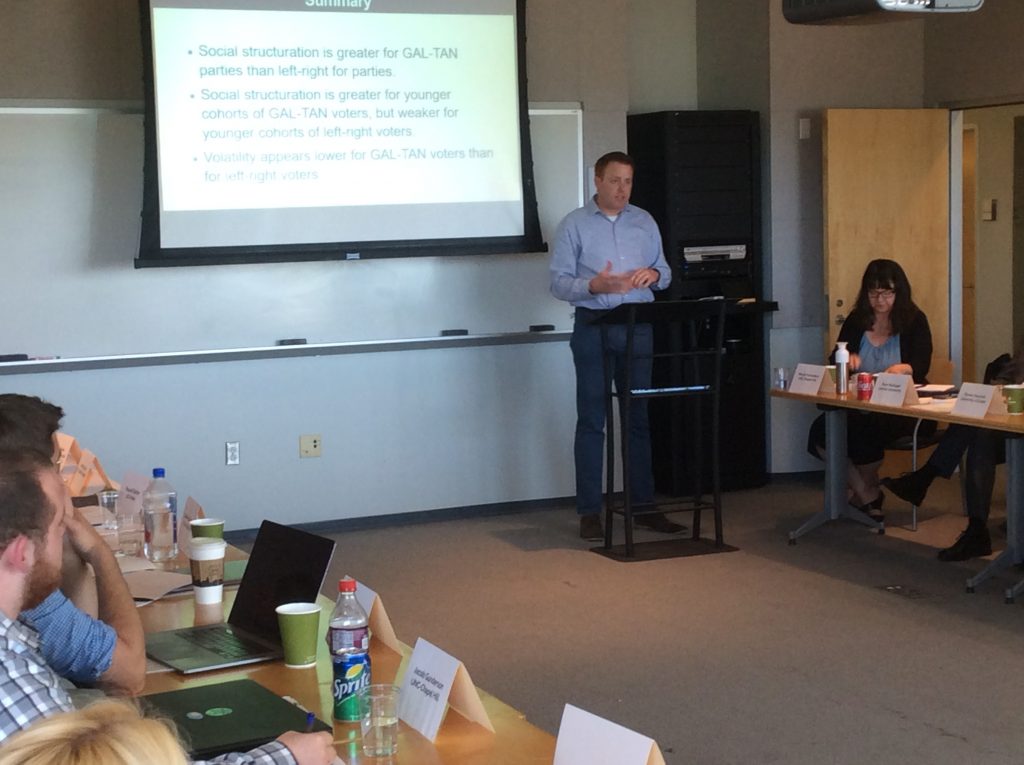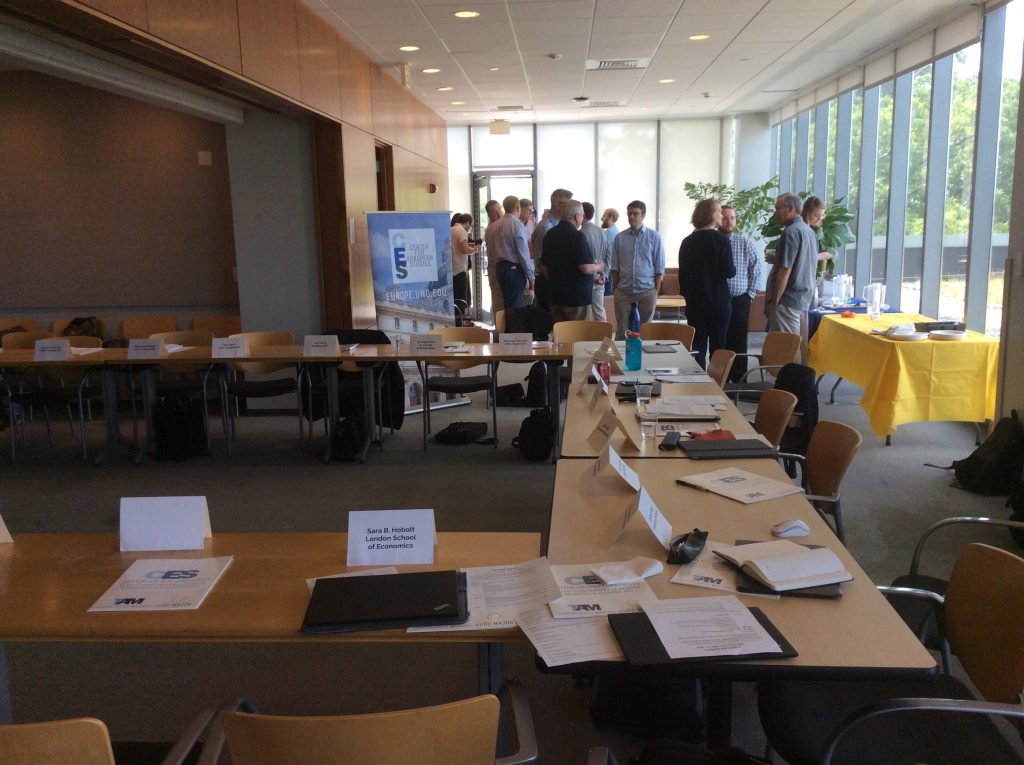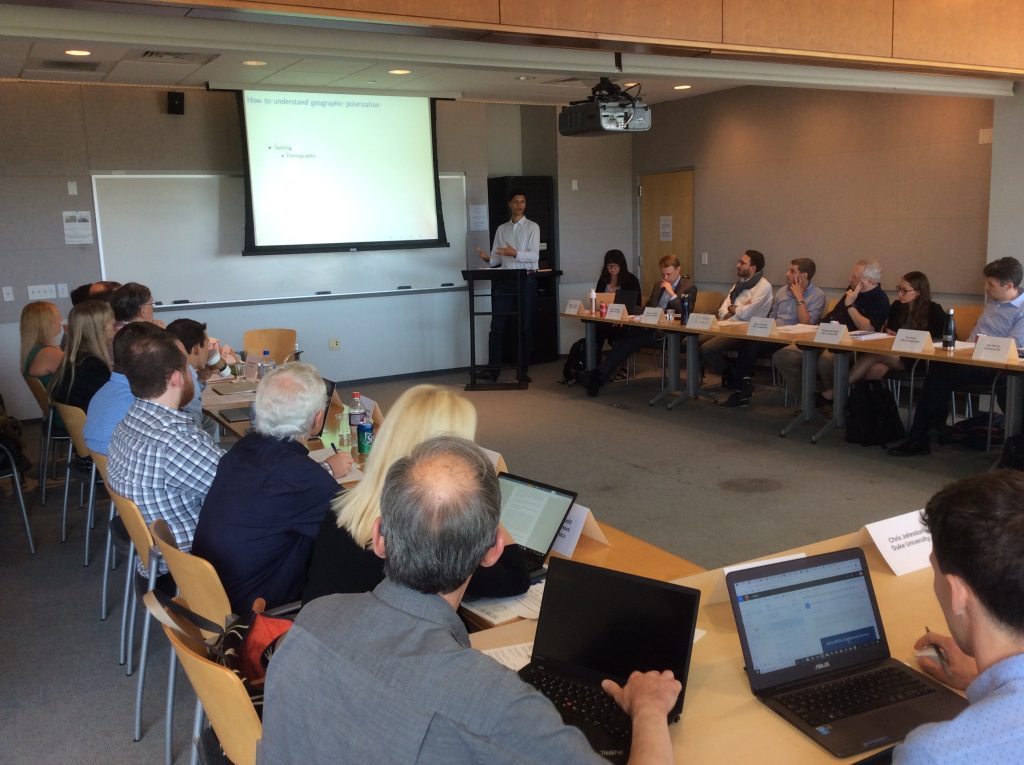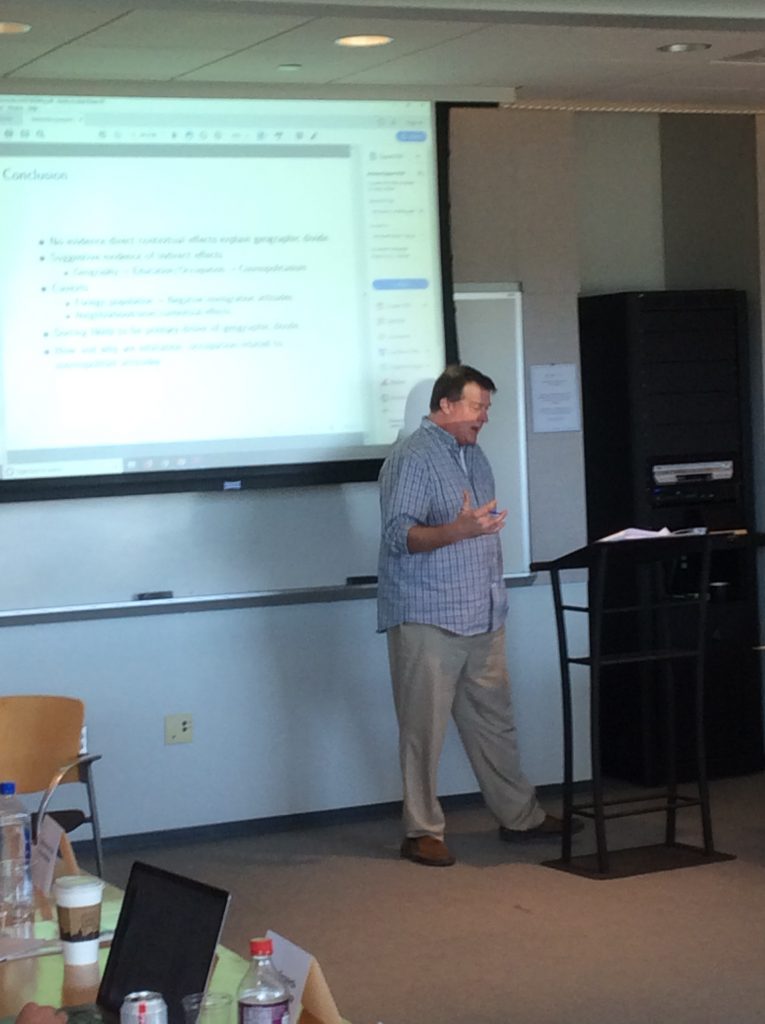Partisan Divides
Partisan Divides Conference
This transatlantic conference brings together scholars around the theme “Partisan Divides.”
The conference confronts scholars of public opinion and party politics on both sides of the Atlantic with a common set of questions. What are the basic conflicts that divide Western societies? How do they find political expression? Is contestation about international governance, European integration, globalization, immigration, cosmopolitanism transient or durable? Are they distinct issues that divide public opinion differently from country from country, and variably over time, or do these issues hang together—perhaps congeal in a political cleavage that could reshape the political landscape for the next generation? What are the contours of the political contestation we seek, and what are the implications for democracy, international governance, and solidarity in the EU and the US?
Scholars will present original, unpublished research. The conference will meet on the fourth floor of the FedEx Global Education Center at UNC-Chapel Hill.
Session I
May 3 | 1:45–3:15pm
Chair: Gary Marks (UNC)
Rahsaan Maxwell (UNC): “Geographic Polarization and Cosmopolitanism: Evidence from Switzerland”
Discussant: Ryan Bakker (U of Georgia)
Gabriele Magni (Princeton U.): “Economic Inequality, Immigrants, and Selective Solidarity: From Perceived Lack of Opportunity to Ingroup Favoritism”
Discussant: Tim Ryan (UNC)
Session II
May 3 | 3:30–5:00pm
Chair: Milada Vachudova (UNC)
Gary Marks (UNC), David Attewell (UNC), Jan Rovny (Sciences Po), Liesbet Hooghe (UNC): “The Social Bases of the Transnational Cleavage”
Discussant: Seth Jolly (Syracuse U.)
Catherine De Vries (VU Amsterdam) and Sara B. Hobolt (LSE): “Challenging the Mainstream: Continuity and Change in European Party Systems”
Discussant: Stephanie Shady (UNC)
Session III
May 4 | 9:30–11:00am
Chair: Liesbet Hooghe (UNC)
Jeremy Ferwerda (Dartmouth College): “Populism as a Reaction to Local Disruption: Evidence from European Municipalities”
Discussant: Liesbet Hooghe (UNC)
Hanna Kleider and Florian Stoeckel (U. of Exeter): “Economic Insecurity and Attitudes Towards Immigrants in Europe: Evidence from Panel Surveys”
Discussant: Andreas Jozwiak (UNC)
Session IV
May 4 | 11:15am–12:45pm
Chair: Lawrence Ezrow (U. of Essex)
Russell J. Dalton (UC Irvine): “Hooligans, Hobbits and Vulcans: Voters, their Parties and the Accuracy of Political Representation”
Discussant: Jelle Koedam (UNC)
Joshua Robison, Rune Stubager (Aarhus U.), Mads Thau, James Tilley: “Does Class-Based Campaigning Work? How Social Class Appeals Attract and Polarize Voters”
Discussant: Chris Johnston (Duke)
Session V
May 4 | 2:00–3:30pm
Chair: Catherine De Vries (VU Amsterdam)
Jan Rovny (Sciences Po): “Ethnicity and Political Competition in Eastern Europe”
Discussant: Anna Brigevich (NC Central U.)
David Attewell (UNC): “The Impact of Deservingness Perceptions and Welfare State Support on Vote Choice in Western Europe”
Discussant: Sara B. Hobolt (LSE)
Session VI
May 4 | 3:45–5:15pm
Chair: Ryan Bakker (U. of Georgia)
Raimondas Ibenskas and Jonathan Polk (U. of Gothenburg): “Congruence and Party Responsiveness in Western Europe in the 21st Century”
Discussant: Caroline Lancaster (UNC)
Jacob Gunderson (UNC): “Unequal Societies and Unequal Parties: The Effect of Inter-Party Inequalities and Issue Salience on Party Polarization”
Discussant: Lawrence Ezrow (U. of Essex)
The Partisan Divides workshop is hosted at the University of North Carolina at Chapel Hill by Liesbet Hooghe, Gary Marks, and the members of the fall 2018 graduate seminar, POLI 891: David Attewell, Jacob Gunderson, Andreas Jozwiak, Jelle Koedam, Caroline Lancaster, and Stephanie Shady.
This workshop is funded by the Kenan and Burton Craige research funds and the Center for European Studies at UNC-Chapel Hill, a Jean Monnet Center of Excellence.
Meeting location: Global Education Center room 4003, 301 Pittsboro St., Chapel Hill NC 27516
This event is co-funded by the Erasmus+ Programme of the European Union.
 The European Commission’s support for the production of this publication does not constitute an endorsement of the contents, which reflect the views only of the authors, and the Commission cannot be held responsible for any use which may be made of the information contained therein.
The European Commission’s support for the production of this publication does not constitute an endorsement of the contents, which reflect the views only of the authors, and the Commission cannot be held responsible for any use which may be made of the information contained therein.
Event Photos
